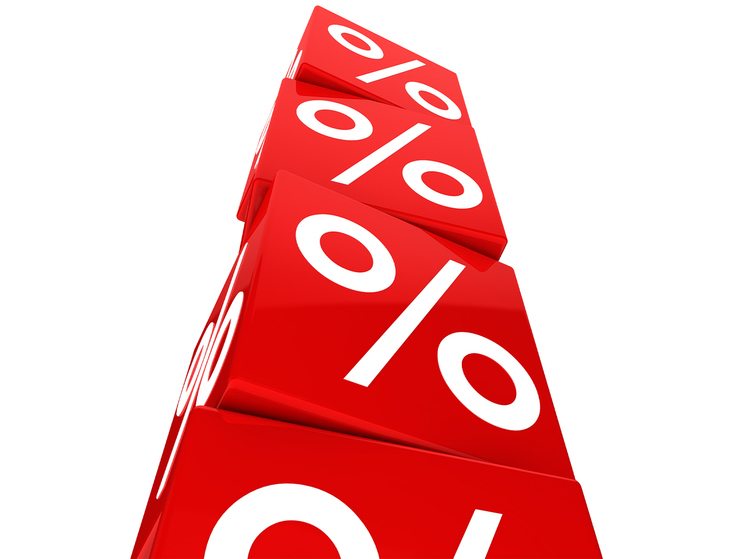Analyst Osadchiy: “If it were not for the actions of the Bank of Russia, it would be like in Turkey — inflation of 75%”
The key rate of the Bank of Russia has not changed since December last year. The regulator maintained it at the level of 16% four times in a row, but at the end of July the board of directors of the Central Bank will most likely interrupt this tradition. The market is confident that the rate will be increased; experts are only discussing how much. At the beginning of July, the head of the Central Bank of the Russian Federation, Elvira Nabiullina, said that “pro-inflationary risks have not just grown, they have come true.” Maxim Osadchiy, head of the analytical department of BKF bank, told MK how the regulator’s decision will affect the lives of Russians.
 Photo: ru.freepik.com
Photo: ru.freepik.com
— According to Rosstat, annual inflation as of July 1 accelerated to 9.22% from 8.61% a week earlier. Deputy Chairman of the Central Bank of the Russian Federation Alexei Zabotkin said in a recent television interview that the regulator observes the peak of annual inflation in July, including “due to a significant increase in tariffs for housing and communal services, which is a one-time event, but makes a large contribution to the annual inflation rate, because last July there was no increase in housing and communal services tariffs.” Accelerating inflation increases the likelihood of an increase in the key rate at the meeting of the Board of Directors of the Central Bank of the Russian Federation on July 26, and the most likely increase is immediately to 18%.
— We see that the relatively high key rate in 16%, in force since December 18 last year, has failed to stop inflation. I was especially pleased with the annual increase in beet prices: 71% in May! So the regulator will apparently have to tighten up the “treatment” of the economy.
— Because this reasonable and cautious policy is opposed by the soft fiscal policy of the Ministry of Finance, as evidenced by the permanent federal budget deficit. For the first half of 2024 it amounted to 0.9 trillion rubles, for 2023 — 3.2 trillion rubles, for 2022 — 3.3 trillion rubles… The cause of inflation is “life directly.”
< /p>
— Most likely, it won’t work, the treatment should be more radical. But if the regulator presses the brake harder, then “the cars could fly off the rails”: a debt crisis will begin.
— Certainly. In the first months of this year, the market expected that in six months the key rate would begin to decline. Therefore, banks set maximum rates on deposits with a maturity of six months. However, in May-June, market expectations began to change, and it became clear that high rates were here to stay. These sentiments were especially strengthened after the sanctions on June 12, as a result of which the Moscow Exchange and its subsidiaries — NCC (National Clearing Center) and NSD (National Settlement Depository) — were included in the SDN list. Because of these sanctions, exchange trading in dollars and euros ceased. Accordingly, in the summer, many banks began to set maximum rates on deposits for a period not of six months, but for a year.
The second main trend in the deposit market is an increase in rates. Currently, you can already find rates at 20%, which is more than twice as high as inflation.
— Indeed, many blame the Central Bank for the fact that the regulator “strangles” the economy with high rates. But the assertion that it is the high key rate that is the reason for high inflation is an erroneous conclusion. It relies on the fact that rising rates contribute to an increase in interest costs of producers, which, in turn, translates into rising prices. However, this effect is significantly delayed compared to the effect of a decrease in demand due to the flow of liquidity into deposits.
I never tire of repeating: if the Central Bank had not raised the key rate, it would have been like in Turkey. And there annual inflation in June was 71.6%, in May it was 75.6%, despite the fact that the key rate was 50%. So, compared to Turkey, we have “peace and quiet, and God’s grace.”
— Seize the moment and earn money. In the context of an expected increase in interest rates, deposits with floating interest rates tied to the key rate are of interest. For “advanced” public investors, floaters are of interest — bonds whose coupons are tied to the RUONIA rate (from the English Ruble OverNight Index Average — this is the interest rate at which banks lend to each other for an overnight period, actually for one day. — Ed. .) or to the key rate. The RUONIA rate is close to the key rate. For example, on July 11 it was 16.46%. Let me remind you that the key rate is 16%. The easiest way for public investors to purchase these bonds is in large banks.
—Depositors will be happier, and borrowers will be sadder because of high interest rates on loans. Moreover, the preferential mortgage program ceased to operate on July 1. Accordingly, instead of the “free” 8% per annum, you will have to pay 19-20% on market mortgages, so interest in housing among Russians began to fade.


